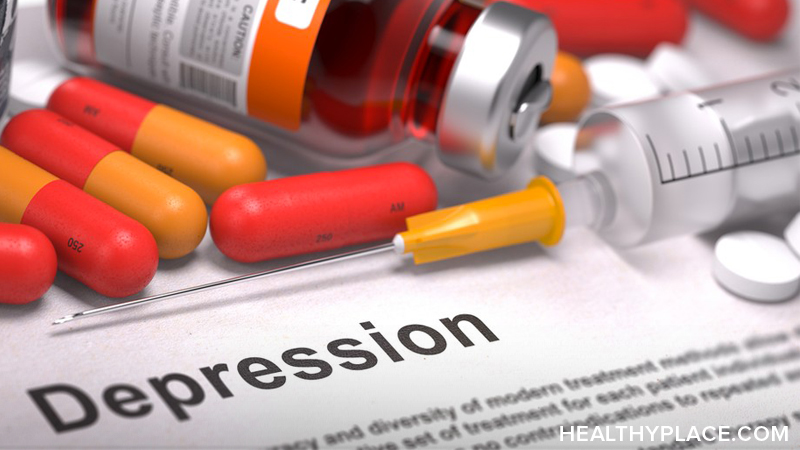Antidepressants for Depression

Overview of antidepressants as a treatment for depression and whether antidepressants work in treating depression.
What are they?
Antidepressants are drugs designed to treat depression. They can only be prescribed by a doctor. There are several different classes of antidepressants. The main ones are the tricyclics, the monoamine oxidase inhibitors ('MAOIs' for short), the selective serotonin reuptake inhibitors ('SSRIs'), the serotonin and noradrenaline reuptake inhibitors ('SNRIs'), and the reversible inhibitors of monoamine oxidase A ('RIMAs'). Each of these general classes includes a number of different drugs. The tricyclics and the MAOIs are older classes of antidepressants, with the MAOIs seldom used these days. The SSRIs, SNRIs and RIMAs have been developed more recently and have come increasingly prescribed.
How do they work?
Antidepressants work by changing the level of neurotransmitters (chemical messengers) in the brain. Several neurotransmitters are thought to be in low supply in depression, including noradrenaline (sometimes called norepinephrine) and serotonin. Tricyclics mainly increase the level of noradrenaline in the brain. The SSRIs work by increasing the supply of serotonin only. The SNRIs and RIMAs increase the supply of both serotonin and noradrenaline in the brain.
Are they effective?
There are a very large number of studies showing that antidepressants work better than placebos (dummy pills) for adults. Tricyclic antidepressants, SSRIs and RIMAs work equally well. The best effects come from combining an antidepressant with a psychological therapy.
Tricyclics do not appear to work for children and have only limited effects on adolescents. There is some evidence that the SSRI fluoxetine is effective in children and adolescents. However, other SSRIs are not advised in children and adolescents because of safety concerns.
Are there any disadvantages?
Antidepressant drugs can have side effects. These tend to be more common for tricyclics than for SSRIs or RIMAs. Contrary to what many people believe, antidepressants are not at all addictive. Antidepressant drugs can take two to four weeks to have an effect. It is important not to give up on them too early. Several SSRI antidepressants (paroxetine, sertraline, citalopram, venlafaxine) may be unsafe for use by children and adolescents because they can produce an increase in suicidal thoughts.
Where do you get them?
Antidepressants can be prescribed by a GP or specialist doctor.
Recommendation
Antidepressants are one of the best treatments available for depressed adults, but caution is advised for children and adolescents. For adults, antidepressants can be combined with psychotherapy for even better results.
Key references
Mulrow CD, Williams JW, Trivedi M et al. Treatment of depression - newer pharmacotherapies. Psychopharmacology Bulletin 1998; 34: 409-610.
Pampallona S, Bollini P, Tibaldi G, Kupelnick B, Munizza C. Combined pharmacotherapy and psychological treatment for depression: a systematic review. Archives of General Psychiatry 2004; 61: 714-719.
Williams JW, Mulrow CD, Chiquette E, Noel PH, Aguilar C, Cornell J. A systematic review of newer pharmacotherapies for depression in adults: Evidence report summary. Annals of Internal Medicine 2000; 132: 743-756.
Whittington CJ, Kendall T, Fonagy P, Cottrell D, Cotgrove A, Boddington E. Selective serotonin reuptake inhibitors in childhood depression: systematic review of published versus unpublished data. Lancet 2004; 363: 1341-1345.
APA Reference
Staff, H.
(2008, October 25). Antidepressants for Depression, HealthyPlace. Retrieved
on 2025, April 24 from https://www.healthyplace.com/alternative-mental-health/depression-alternative/antidepressants-for-depression



